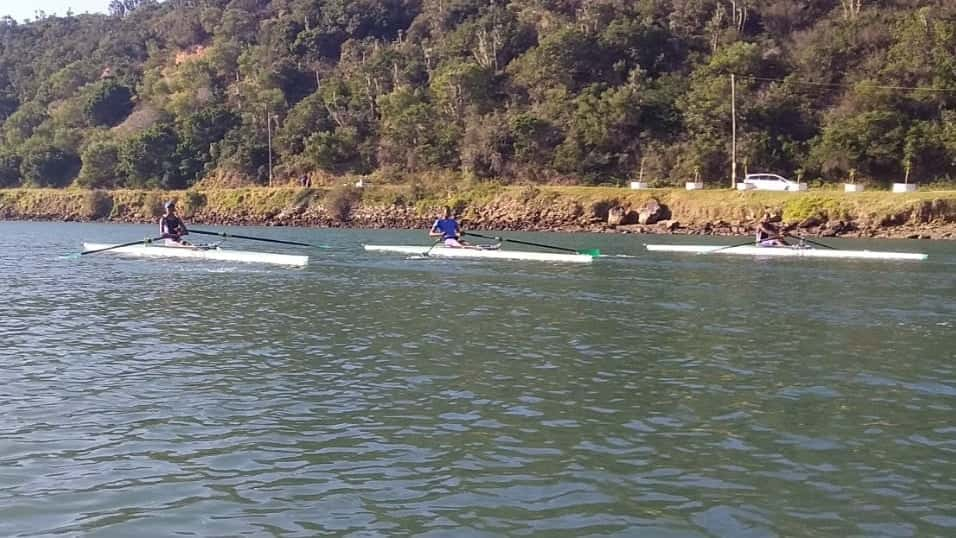
29 Dec 2020
It’s about more than the rowing for South Africa’s Port Alfred club
This year has been anything but normal with rowing clubs around the world working out innovative ways to keep going. World Rowing recognises the extraordinary efforts of rowers and rowing clubs around the world to adapt to the coronavirus measures in their own countries while maintaining sport and community as much as possible.
In this fourth and final article we look at the unexpected effects of the COVID-19 pandemic and subsequent lockdown at a small rowing club in South Africa.
Sheldon Nelson is the head coach at Nemato Change a Life Rowing Club in Port Alfred, South Africa. The programme, designed to bring rowing to those with limited resources, had been running strong before the coronavirus pandemic. Junior and senior athletes were training five times per week – with supplemental homework help and a full meal after each training session. But in April, the club was required to lockdown and the ramifications were far-reaching.
“We are working in a really poor community,” Nelson explains. “They get a full meal after training and that was taken away. That hit them really hard.”
Nelson says that he received messages from his rowers asking when rowing would start again.
“It was about telling them, ‘don’t lose hope, we’re almost there,’” he says. “Knowing how bad it is, you as a coach get drawn in and learn more about their situations.”
“I gave my rowers some programmes to stay fit at home, some push ups, sit ups, burpees, that kind of thing,” Nelson says. “But from the beginning we were on a mission to re-open.”
In late September the club was finally allowed to open again and Nelson is thrilled to have many of his athletes back on the water. The club made adjustments, including reducing from five to three training sessions per week, taking the temperature of athletes when they arrive and providing sanitation materials. So far, the coronavirus measures have worked.
“We haven’t had any cases. We’ve been open for two months and everything is going well,” he says.
Nelson is looking forward to possible racing next year. He says it is one of the best experiences for his athletes.
“The rowers see that sport is working out. Even if they have been told in their past that they can’t do it. It is so exciting to compete against the best schools, against people who are more privileged. They go to the start line as equals and become competitors during the race,” Nelson says.
And yet the potential for the virus to surge again is very real. Nelson says the cases are increasing and it is starting to get closer to home. “It is scary, especially when people you know start to be infected. I really hope that it doesn’t peak again and we are able to keep the rowing club open,” because for Nelson and his rowers, the significance of rowing practice goes far beyond the sport.

